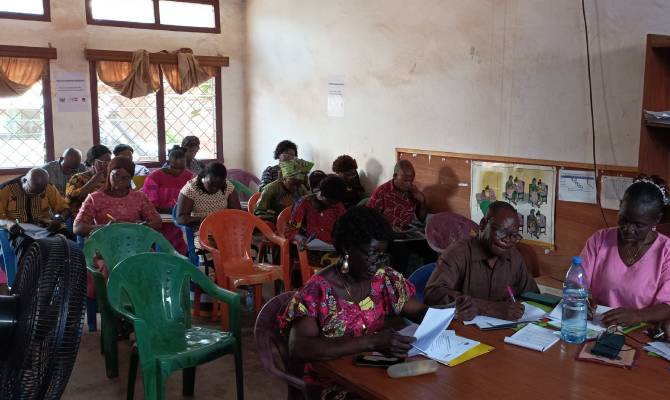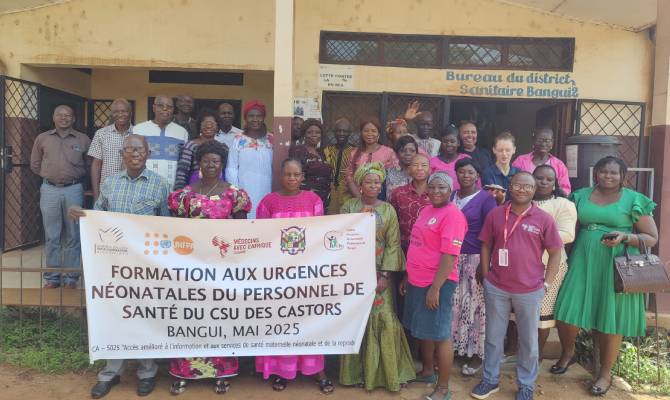Involving health professionals in on-the-job training can significantly impact the quality of services provided and improve health outcomes, from peripheral health centers to central hospitals.
A three-day training focused on neonatal emergencies was held in Bangui, Central African Republic, as part of a project implemented by CUAMM with the support of UNFPA.
Twenty-five health workers, led by Professor Ngbale, Deputy Head of the Gynecology and Obstetrics Department at CHUC (Community Hospital of Bangui), took part in a series of training sessions with the goal of providing quality care at the peripheral level, therefore improve the health conditions of newborns transferred to the emergency department at Bangui Pediatric Hospital (CHUPB).

“The knowledge gained is not entirely new to me, but science evolves day after day. Ensuring that health professionals stay up to date with the latest guidelines is therefore essential if we want to offer quality care to women and newborns and reduce mortality” said Nzomon Dorcas, midwife. “When I graduated, for example, the 56 WHO recommendations on intrapartum care didn’t exist. Clinical care approaches have also changed over time—just think of oxytocin, which used to be administered systematically, whereas now we know its use should be limited.”
The training, organized under the project “Improved access to information and maternal, neonatal and reproductive health services”, took place at the Bangui II Health District and involved 4 doctors, 1 gynecologist, 15 midwives, and 5 certified nurses.
“The topics covered during the training weren’t new to me, but it allowed us to update ourselves on best practices and new protocols to follow, such as neonatal assessment or identifying danger signs in mothers,” said Welekoi Pierre, nurse. “Opportunities like this are also a great time for us health professionals to exchange experiences and learn from one another.”





